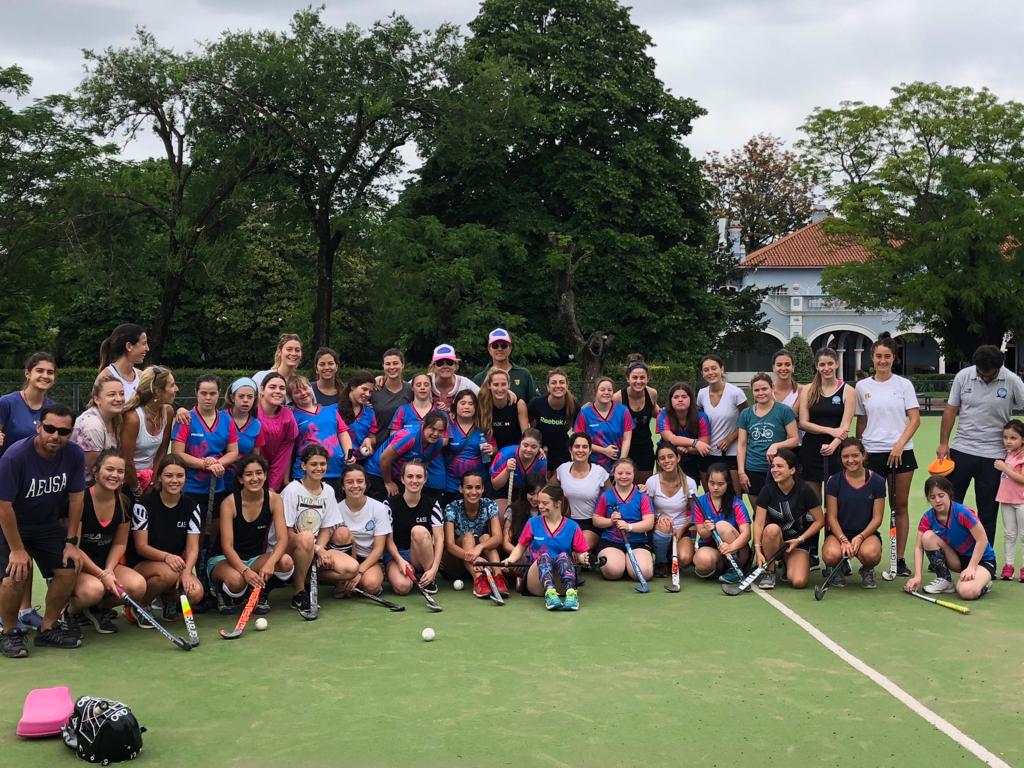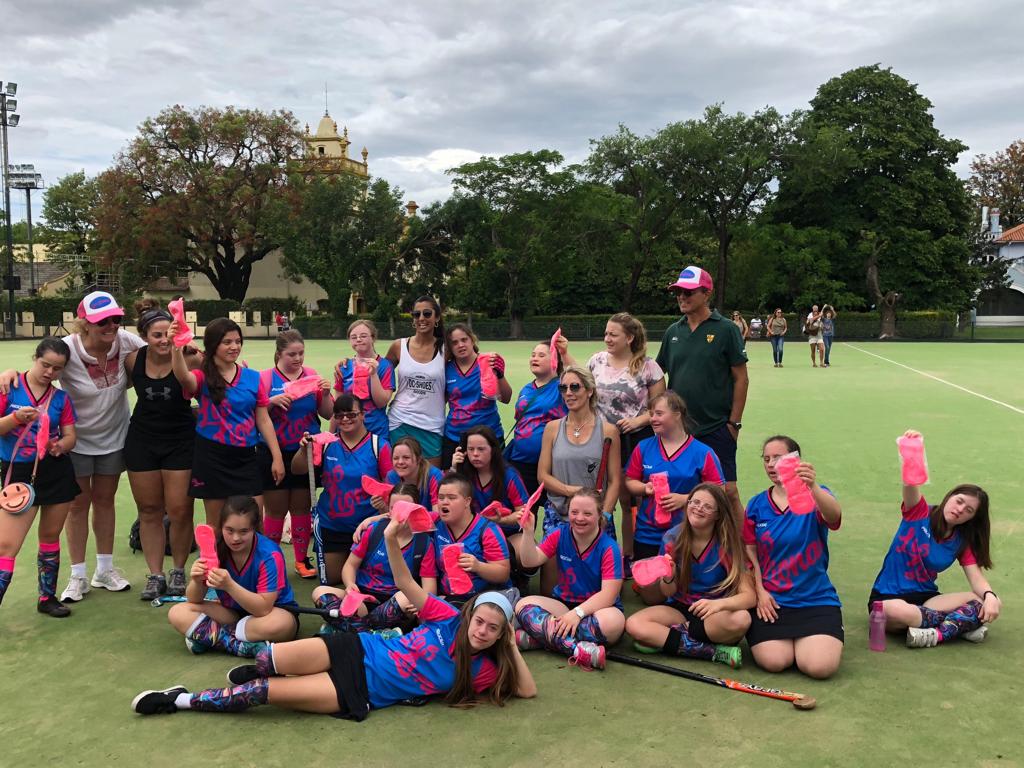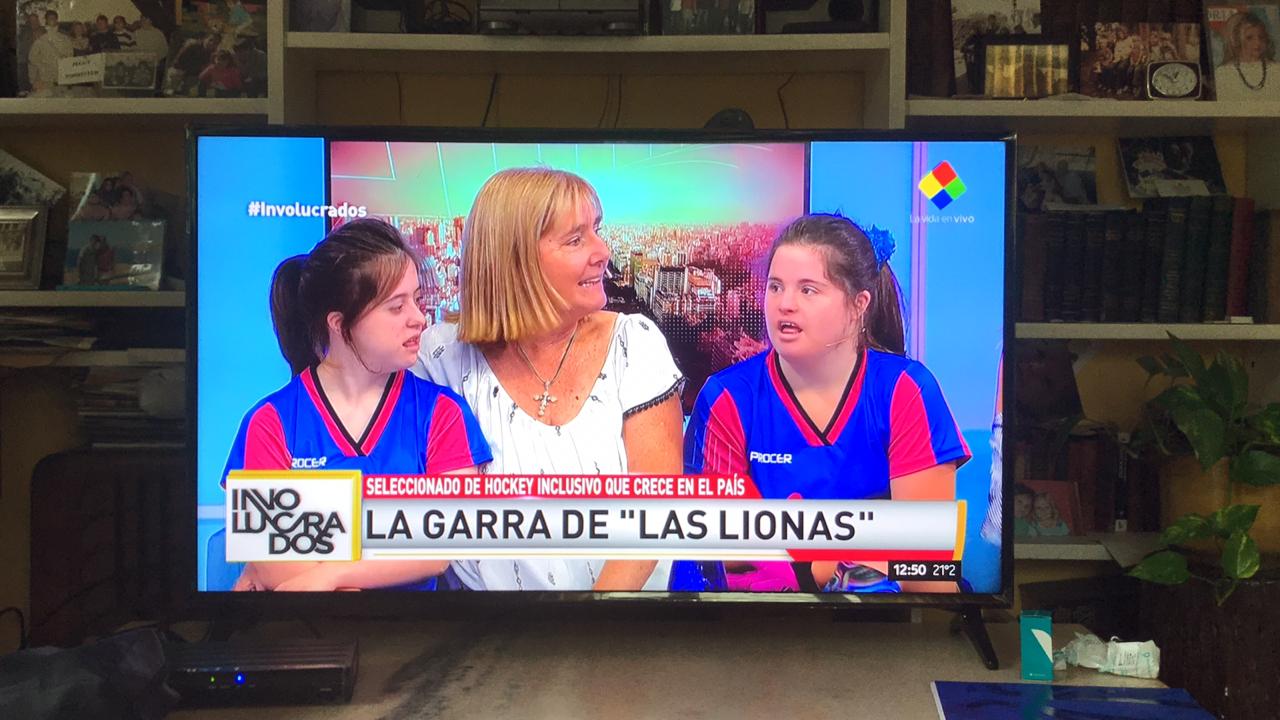
If ParaHockey were to be included in the 2024 Paralympic Games, then Silvina Forrester’s dreams will have come true.
It will mean that the work of people like Silvina – who understand the huge importance that sports like hockey have in promoting healthier, happier lives for those living with disabilities – has been recognised and rewarded.
“My biggest wish is that this [ParaHockey] spreads worldwide. Not just here in our corner of Argentina, and in other pockets around the world, but globally. I know I am just dreaming but 2024 Paralympics Hockey would be a great thing. I guess I want people to realise that perfection is not just about what is rated important by society – such as intelligence or success in a career – but it actually can be found in other places too. My daughter, the other people in the group, the helpers, the coaches, the mothers, they are all incredible people in their own right.”
Silvina’s involvement with ParaHockey emanates from her own personal life story. When she gave birth to her and husband Peter’s fourth child, Clara, not only was she extremely ill following the birth but Clara was born with Downs Syndrome.
Before the story goes any further, Silvina firmly adds a caveat: “I disagree wholeheartedly with the term ‘disability’. I would rather say someone has ‘different abilities’, because what these people can achieve in life is incredible.”
And achievement is what this story celebrates.
Clara is now 20 years old and a talented hockey player. The whole family lives a very sports-focussed lifestyle, with Silvina and Peter’s other three children all immersed in hockey and rugby, while Silvina herself has played or coached hockey for 53 of her 58 years.
Clara was first introduced to hockey when she was six. Silvina took her along to the Belgrano Hockey Club in Buenos Aires and quickly it became apparent that regular participation in the sport was not only good for the youngster’s fitness and coordination but it also helped her progress socially as well.
“Peter and myself have always believed that the power of sport is far more wide-reaching than just learning skills and performing on the field of play. And we have always wanted to show how important sport is, for all sorts of reasons, for people with different abilities,” says Silvina.
And so in 2017, Silvina decided it was time for her and Peter to start a project that had been playing around in her mind for some time.
“The starting point was Clara’s birthday party. She had invited 12 friends and I asked them if they would like the chance to play hockey. It was raining so we set up an indoor area. I put on some music and we did a warm-up, then I gave them some coaching in basic skills – holding the stick, pushing a ball – then we played our first game.”
From there, the progress has been astonishingly rapid. Silvina put forward her ideas for a ParaHockey section at the Belgrano Club and it got the instantaneous and wholehearted support of the club president. Importantly, it also caught the imagination of several of the first team players – including members past and present of the national squad – who flocked to help at training sessions.
“We had 12 players to start,” Silvina recalls. “Five months later, we had 25 girls. When we returned after the break between seasons, we had 35. We’ve just had a break but I’m expecting 41 when we resume again later this month. We are also taking boys for the first time, so we will have even more players.”
There is a touch of bemusement in Silvina’s voice as she says: “I didn’t even realise I was starting ParaHockey in Buenos Aires. It just began as a dream and quickly it has got bigger and bigger.
“We started playing one Sunday a month but suddenly people began to hear about us and we were invited by other clubs to go and train at their facilities and then play a match. It helps that the first team players are so willing to get involved with the coaching and generally helping out.”
The ParaHockey club caters for all ages and all abilities. The youngest player is six, the oldest is 35. Because of the willingness of the volunteers, for the players who are less able, there is often enough people to offer one-to-one coaching. When it comes to playing a game, the players who turn out for the club’s first team are equally willing to play alongside their young charges at ParaHockey sessions.
“I actually think they get more than they give from the sessions,” says Silvina, speaking of her army of coaches and helpers.
Silvina’s growing realisation that she was providing something special was strengthened when, just a year after the group had formed, they received an invitation to go on a sports tour to Mendoza. 18 hockey players joined a squad of Para rugby players and they set off on a four-day trip.
As Silvina explains, this wasn’t just about traveling to play sport, this was a huge learning curve for everyone involved. Some players were away from their parents for the first time; for many the trip involved their first ever flight; for some, it was the first time they had made their own beds.
During the trip, the players got to try a number of other sports as well as playing a hockey competition against groups from Mendoza. Silvina had the chance to talk to local hockey club members about the work she and her team of coaches and helpers are doing in Buenos Aires.
The defining moment for the Belgrano Hockey Club ParaHockey group came in 2017 when Silvina was invited to take her team to the Youth Olympic Games to train and play on the same pitch that the international squads would be competing on.
“I couldn’t take the entire group of 35,” says Silvina, “So I had to chose 18 players. We really trained hard in preparation for the event. It was an incredible experience. We trained on the pitch and then played a game. It coincided with the PAHF’s ParaHockey launch. To have been included in that whole event shows the level of support the PAHF is giving to the development of ParaHockey.
“On the back of the Youth Olympic Games I was invited onto television shows, I was interviewed by newspapers and I went on several radio stations.”
For Silvina, this was probably the most rewarding part of the experience. It meant she was able to tell her story to a wider world. She can barely suppress the emotion in her voice as she says: “Our main goal is to give the players a chance to find a place where they feel they are part of a team, part of a group of friends. They learn how to coordinate, how to run, how to play. They learn patience, sharing. They learn so much, it makes me emotional.
“The world needs to find out that these players can do what they want and achieve what they aim for. All they need is love, perseverance, help and support. To show the world what they can do is the most important thing. It’s not about what they can’t do, it’s what they can do that is so incredible.”


